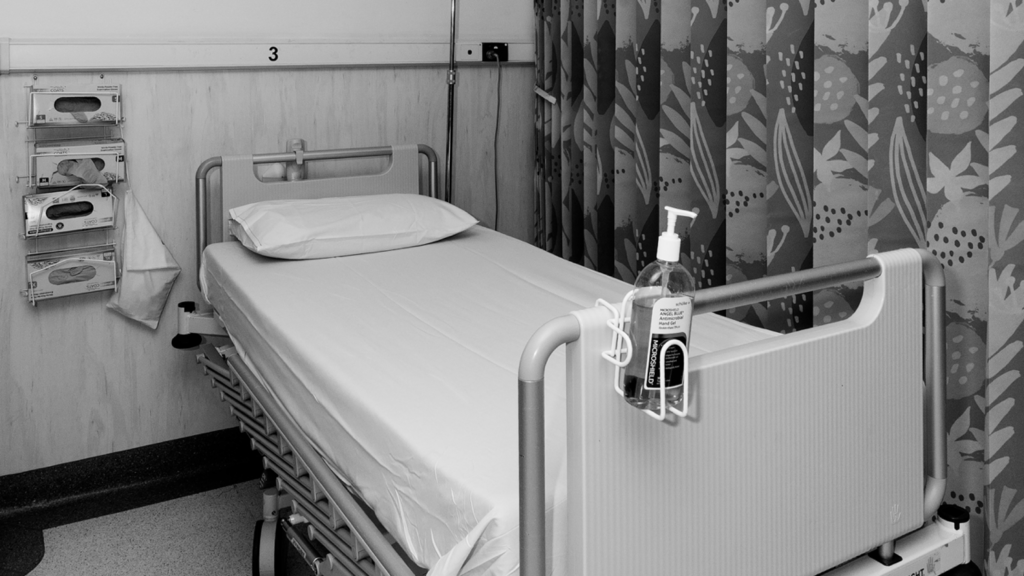Percentage of admitted patients who discharged against medical advice
Rationale
Discharge against medical advice (DAMA) refers to patients leaving hospital against the advice of their treating medical team or without advising hospital staff (e.g. take own leave, left without notice, missing and not found, or discharge at own risk). Patients who do so have a higher risk of readmission and mortality and have been found to cost the health system 50 per cent more than patients who are discharged by their physician.
The national Aboriginal and Torres Strait Islander Health Performance Framework reports discharge at own risk under the heading ‘Self-discharge from hospital’. Between July 2019 and June 2021 Aboriginal patients (4.4%) in WA were 7.5 times more likely than non-Aboriginal patients (0.6%) to discharge at own risk, compared with 5.2 times nationally (3.8% and 0.7% respectively). This statistic indicates a need for improved responses by the health system to the needs of Aboriginal patients. This indicator is also being reported in the Report on Government Services 2024 under the performance of governments in providing acute care services in public hospitals.
This indicator provides a measure of the safety and quality of inpatient care. Reporting the results by Aboriginal status measures the effectiveness of initiatives within the WA health system to deliver culturally secure services to Aboriginal people. While the aim is to achieve equitable treatment outcomes, the targets reflect the need for a long-term approach to progressively closing the gap between Aboriginal and non-Aboriginal patient cohorts.
DAMA performance measure is also one of the key contextual indicators of Outcome 1 “Aboriginal and Torres Strait Islander people enjoy long and healthy lives” under the new National Agreement on Closing the Gap, which was agreed to by the Coalition of Aboriginal and Torres Strait Islander Peak Organisations, and all Australian Governments in July 2020.
Note: This indicator is reported by calendar year. Some indicators are reported by calendar year to allow for delays associated with the clinical coding of medical records, data quality checking, data linkage processing, and the setting of targets in accordance with the Government Budget Statement.
Target
The 2023 targets for admitted patients who discharged against medical advice are:
| a) Aboriginal patients | ≤ 2.78% |
| b) Non-Aboriginal patients | ≤ 0.99% |
Improved or maintained performance is demonstrated by a result below or equal to target.
Results
Click the drop-down arrow to see different KPI categories
(a) Aboriginal patients
| Year | Target | Actual | |
|---|---|---|---|
| Years 2024 | Target 2.78% | Actual 6.90% |
|
| Years 2023 | Target | Actual 6.17% |
|
| Years 2022 | Target | Actual 5.98% |
|
| Years 2021 | Target | Actual 5.87% |
|
| Year | Target | Actual | |
|---|---|---|---|
| Years 2024 | Target 0.99% | Actual 1.29% |
|
| Years 2023 | Target | Actual 1.14% |
|
| Years 2022 | Target | Actual 1.09% |
|
| Years 2021 | Target | Actual 1.16% |
|
Commentary
Performance outcomes for EMHS in 2024 did not achieve DAMA targets, however it should be noted that at some sites, local improvement in performance was achieved:
- Armadale Hospital DAMA performance improved in 2024 when compared to 2023, going from 1.4% to 1.2% for non-Aboriginal patients and from 6.4% to 5.8% for Aboriginal patients in 2023 and 2024 respectively.
- Bentley Hospital DAMA performance also improved in 2024, going from 3.4% to 3.1% for Aboriginal patients.
- St John of God Midland Public Hospital (SJGMPH) performance improved from 4.4% to 3.6% for Aboriginal patients and stayed the same for non-Aboriginal patients.
A range of strategies and actions to support DAMA performance have been employed across EMHS and locally by sites, these include:
- Developing targeted DAMA and Did not wait (DNW) training modules as part of the Aboriginal Health Champions program for hospital staff who work in areas with high Aboriginal consumer ratios.
- Supporting implementation and compliance with EMHS DAMA policies by undertaking broad stakeholder consultation, focusing on Aboriginal consumers, cultural safety and critical success factors.
- Royal Perth Hospital (RPH) is working to enhance the ward environment to support Aboriginal patients to remain in hospital for the duration of their care.
- RPH is working to integrate the First Nations consumer voice into DAMA and Patient Initiated Discharge (PID) processes, and to implement learnings from the Aboriginal patient case review.
- At Armadale and Kalamunda Hospitals, the Aboriginal Health Team ensures that every Aboriginal client is offered access to the Aboriginal Health Liaison Officer service and contacts patients who DAMA.
- Armadale and Kalamunda Hospitals are working to embed use of the PID form to ensure safe discharges and embed active follow up with DAMA patients.
- SJGMPH have an established Aboriginal Health Strategic Framework, with progress against committed actions tracked and reported via the Midland and EMHS Aboriginal Health and Wellbeing Committees.
- The SJGMPH Aboriginal Health Team ensure referrals, medications and management plans are in place and discuss any issues with the patient before they DAMA.
- SJGMPH is working to embed strategies to reduce DAMA with a focus on enhancing culturally secure care and environments.
In late 2024 the EMHS Leave Events Action Plan 2025 was developed and strategically identifies and supports implementation of actions and initiatives to improve leave event performance across EMHS and includes DAMA events.
Period: 2021 to 2024 calendar years
Contributing sites: Armadale/Kelmscott District Memorial Hospital, Bentley Hospital, Kalamunda Hospital, Royal Perth Bentley Group Transitional Care Unit (Bidi Wungen Kaat Centre)1, Royal Perth
Hospital, St John of God Midland Public Hospital
Data source: HMDC
1The Transitional Care Unit contributed to the DAMA KPI, however was reported under Bentley Hospital for the full calendar year.
Outcome one // Effectiveness KPI

